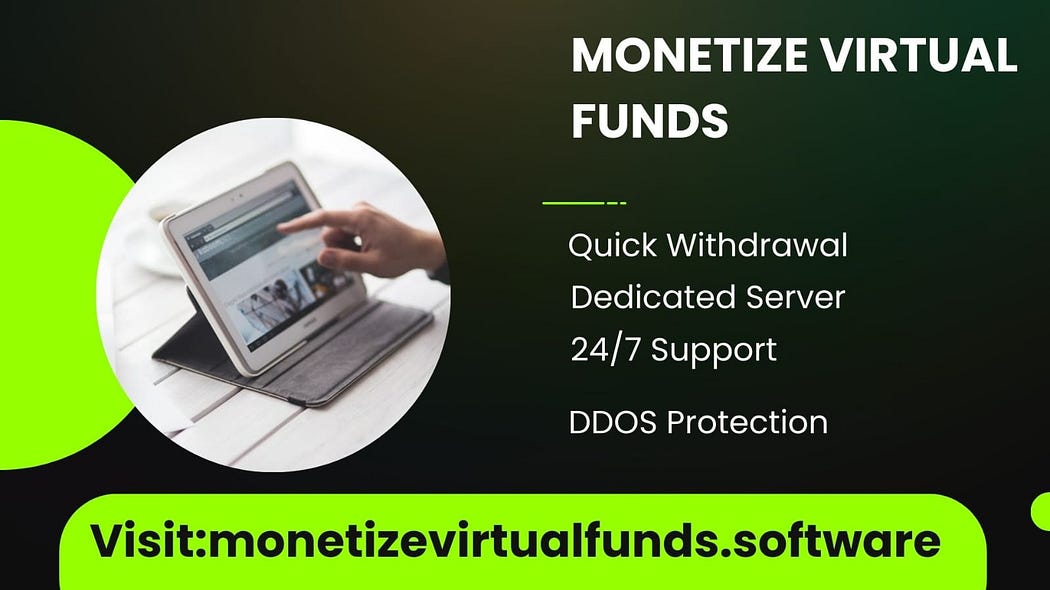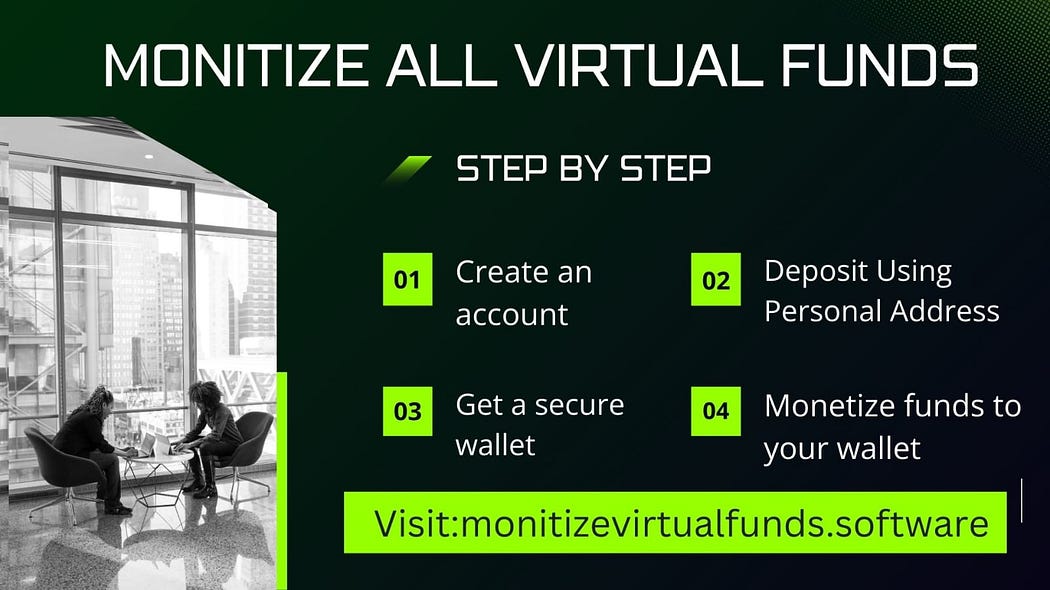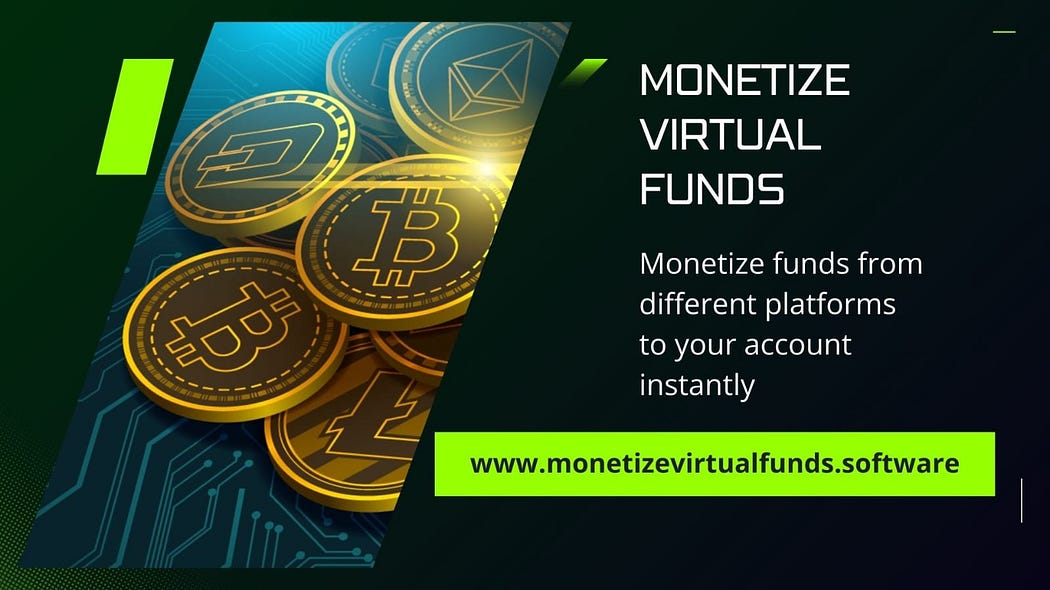Monetize Virtual Funds; monetizevirtualfunds.software is AI monetization platform which optimizes ad earning with users with active and inactive accounts, ensuring a seamless audience and experience
Markets | Monetize Virtual Funds
Monetize Funds from different platforms to your account wallet instantly!
www.monetizevirtualfunds.software
Message Us At: [email protected]
Call Us At: “+1 619 432 5672"
In an increasingly digital world, virtual funds have become a cornerstone of modern finance. From cryptocurrencies to digital wallets and in-game currencies, these forms of virtual money offer unique opportunities for monetization. This article explores the various ways individuals and businesses can monetize virtual invest now on crypto assets , unlocking new streams of revenue in the digital economy.

1. Cryptocurrencies: Trading and InvestmentCryptocurrencies like Bitcoin, Ethereum, and others have gained significant popularity as digital assets. Here are some common methods of monetizing cryptocurrencies:
- Trading: Engage in buying and selling cryptocurrencies on various exchanges to capitalize on market volatility. Day trading and swing trading are popular strategies.
- HODLing: The practice of holding onto cryptocurrencies for a long period, betting on the future appreciation of their value.
- Staking: Participating in the proof-of-stake (PoS) process to earn rewards. By holding and staking a certain amount of a cryptocurrency, users can earn additional coins.

2. Digital Wallets and Payment SystemsDigital wallets like PayPal, Venmo, and Apple Pay have revolutionized how we handle money online. Monetization strategies include:
- Merchant Services: Businesses can accept payments via digital wallets, making transactions seamless for customers and increasing sales.
- Fees: Platforms like PayPal charge transaction fees, creating a revenue stream for wallet providers.
- Interest: Some digital wallets offer interest on stored funds, similar to a traditional savings account.
3. In-Game CurrenciesIn the gaming industry, virtual currencies are prevalent, providing numerous monetization opportunities:
- Microtransactions: Players purchase in-game items, skins, and upgrades with real money, converting it into virtual currency.
- Subscription Models: Offering premium memberships or battle passes that provide exclusive in-game content.
- Secondary Markets: Some games allow trading of virtual items on secondary markets, where rare items can fetch high prices.
4. NFTs (Non-Fungible Tokens)NFTs have exploded in popularity, representing ownership of unique digital assets. Monetization methods include:
- Creating and Selling NFTs: Artists and creators can mint their digital works as NFTs and sell them on marketplaces like OpenSea.
- Royalties: Smart contracts can include royalty provisions, ensuring creators earn a percentage of sales each time the NFT is resold.
- Investment: Purchasing NFTs as an investment, hoping their value will increase over time.
5. Loyalty Points and Rewards ProgramsMany companies offer virtual loyalty points or rewards that can be monetized:
- Redemption: Points can often be redeemed for products, services, or discounts, providing real-world value.
- Resale: Some platforms allow users to sell their loyalty points or rewards for cash.
6. Virtual Real EstateThe concept of virtual real estate is becoming increasingly popular in virtual worlds and metaverses like Decentraland and The Sandbox:
- Buying and Selling: Purchase virtual land and sell it at a higher price as the virtual world gains popularity.
- Development: Develop virtual properties to increase their value or generate income through leasing or hosting virtual events.
7. Crowdfunding and FundraisingVirtual funds can also be used for crowdfunding initiatives:
- Crypto Donations: Accepting cryptocurrency donations for projects or causes.
- Token Sales: Issuing utility tokens to raise funds for new ventures, often seen in the form of Initial Coin Offerings (ICOs) or Security Token Offerings (STOs).

ConclusionThe monetization of virtual funds encompasses a wide array of strategies, from trading cryptocurrencies and engaging in microtransactions to leveraging NFTs and virtual real estate. As digital and virtual economies continue to grow, the potential for monetizing virtual funds will expand, offering innovative ways to generate revenue and build digital wealth.
By understanding and utilizing these methods, individuals and businesses can unlock new opportunities in the ever-evolving landscape of virtual finance.
